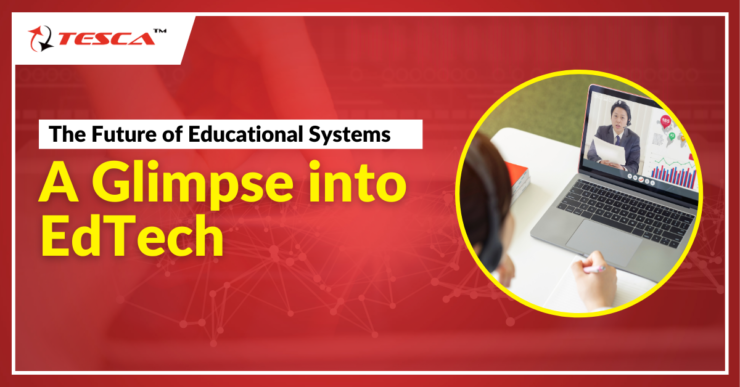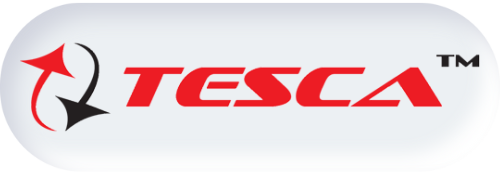Table of Contents
In today’s rapidly evolving digital landscape, the education sector is experiencing a profound transformation, and this shift is largely attributed to the rise of Educational Technology (EdTech).
EdTech has become a game-changer, revolutionizing traditional educational systems and opening up new possibilities for learners and educators alike.
This article delves into the exciting future of educational systems as we explore the various facets of EdTech and its impact on teaching, learning, and the overall educational experience.
The Future of Educational Systems: A Glimpse into EdTech
As we embark on a journey into the future of educational systems, it is evident that technology is at the forefront of this transformative revolution. Educational Technology, or EdTech, refers to the innovative integration of technology in education to enhance teaching and learning experiences.
With the digital age in full swing, the traditional chalkboard and textbook methods are gradually giving way to interactive, dynamic, and personalized learning facilitated by EdTech tools.
The importance of EdTech in modern education cannot be overstated. It holds the potential to address some of the long-standing challenges faced by traditional educational systems, making education more accessible, engaging, and effective for students of all ages.
By incorporating a wide array of technologies, such as computers, tablets, virtual reality, artificial intelligence, and the internet, EdTech transforms the way knowledge is imparted and acquired.
1. Current Challenges in Education
Before we delve into the promises of EdTech, it is essential to acknowledge the current challenges faced by conventional educational systems. One significant issue is the lack of accessibility, especially in remote and underserved areas.
Many students lack the necessary resources, like textbooks and proper infrastructure, hindering their ability to receive a quality education.
Moreover, traditional teaching methods often struggle to capture the attention of the digital generation. Students today are accustomed to interactive and visually stimulating content, and the passive nature of traditional lectures might not be as effective in engaging them.
2. The Rise of EdTech
In recent years, we have witnessed a remarkable rise in the adoption of EdTech in educational institutions worldwide. The rapid advancement of technology has made EdTech more accessible and affordable than ever before.
Institutions are recognizing the immense potential of these tools to enhance learning outcomes and are eager to integrate them into their curricula.
One of the key benefits of EdTech is its ability to cater to individual learning styles. By offering personalized learning experiences, EdTech ensures that each student can progress at their own pace, thereby maximizing their understanding and retention of the material.
3. Empowering Teachers with EdTech
Contrary to the misconception that EdTech aims to replace teachers, it actually empowers them and expands their capabilities.
Professional development opportunities in EdTech allow educators to enhance their digital literacy and stay abreast of the latest teaching methodologies.
Moreover, EdTech provides teachers with valuable insights into their students’ performance through data-driven analytics. This data enables educators to identify areas where students may be struggling and adjust their teaching strategies accordingly.
4. Transforming the Learning Experience
EdTech has transformed the learning experience from being a passive consumption of information to an interactive and immersive journey. With the integration of multimedia elements, such as videos, animations, and simulations, complex concepts become more accessible and engaging for students.
Imagine learning about the solar system through a virtual tour of the planets or understanding historical events by virtually traveling back in time. EdTech makes these experiences possible, leaving a lasting impact on students’ understanding and memory retention.
Another exciting aspect of EdTech is the concept of gamification. By incorporating game-like elements into educational content, learning becomes more enjoyable and motivating.
Students can earn points, badges, and rewards as they progress through their studies, turning the learning process into an exciting adventure. Gamification fosters healthy competition and encourages students to take an active role in their education.
Furthermore, the integration of virtual and augmented reality in the classroom takes learning to a whole new level. Students can explore ancient civilizations, witness scientific phenomena, or conduct virtual experiments, all from the confines of their classrooms.
These immersive experiences provide students with a deeper understanding of the subject matter, making it an invaluable tool for educators.
5. The Role of Artificial Intelligence (AI)
Artificial Intelligence is at the heart of many EdTech innovations. AI-powered adaptive learning algorithms are capable of tailoring educational content to suit each student’s unique needs and learning pace.
This individualized approach ensures that no student is left behind and that each one receives the necessary support and challenges to reach their full potential.
Additionally, AI-driven educational assistants, like chatbots, offer instant help and guidance to students when they encounter difficulties while studying.
These assistants can provide explanations, answer questions, and offer personalized study recommendations, enhancing the learning experience even further.
AI also plays a crucial role in educational assessments. It can analyze student performance data and generate insights into their strengths and weaknesses. By identifying areas of improvement, teachers can devise targeted interventions to help students excel academically.
Read Also: Transforming Education: The Vital Role of AI in Modern Educational Systems
6. The Future of Assessment and Evaluation
Traditional standardized testing, while useful in some contexts, may not fully capture a student’s true capabilities and potential. EdTech is paving the way for more dynamic and meaningful forms of assessment.
Continuous and formative assessments, integrated into the learning process, offer valuable feedback to students and educators alike. This feedback loop allows for adjustments and improvements in real time, leading to better learning outcomes.
Moreover, AI-driven performance analysis provides a comprehensive understanding of a student’s progress. It goes beyond simple test scores and delves into the student’s learning patterns, strengths, and areas requiring improvement.
This holistic approach to assessment ensures a more comprehensive evaluation of a student’s abilities.
7. EdTech and Inclusivity
One of the most significant advantages of EdTech is its potential to bridge the digital divide in education. By making educational resources available online, students from remote and underserved areas gain access to quality learning materials and opportunities.
Additionally, the flexibility of EdTech allows students to learn at their own pace, accommodating different learning styles and abilities.
EdTech also enables personalized learning experiences for students with special educational needs. Whether through adaptive learning tools or assistive technologies, EdTech can customize learning to meet individual requirements. This inclusivity fosters a more supportive and diverse learning environment.
8. Global Collaboration and Learning Networks
EdTech has shattered the limitations of geographical boundaries in education. Students and educators can now connect with peers from around the world, engaging in collaborative projects and cross-cultural learning experiences.
These global networks foster mutual understanding, cultural awareness, and empathy among students, preparing them for a globalized world.
Through online platforms and learning communities, students can share ideas, discuss topics, and collaborate on projects, enriching their educational journey beyond the confines of the classroom.
9. Data Privacy and Security in EdTech
While EdTech offers a myriad of benefits, it also raises concerns regarding data privacy and security. Educational institutions and EdTech providers must prioritize safeguarding sensitive student information.
Robust security measures, data encryption, and compliance with relevant regulations are essential to ensure the safety of student data.
Furthermore, there should be a balance between data-driven insights and maintaining privacy. EdTech tools must strike the right balance, leveraging data to enhance learning outcomes without compromising individual privacy.
Read Also: What is Local Area Network, Types and Benefits of LAN?
10. Challenges and Limitations of EdTech
As promising as EdTech is, it also faces several challenges and limitations. One significant obstacle is the initial cost and infrastructure requirements. Many schools and institutions may lack the necessary funds and resources to adopt EdTech on a large scale.
Additionally, resistance to change from educators and administrators can hinder the seamless integration of EdTech. Proper training and support are crucial to helping stakeholders embrace the transformative potential of these tools.
Moreover, ensuring equitable access to technology is another challenge. Not all students may have access to devices or a stable internet connection at home, potentially creating disparities in learning opportunities.
11. The Role of Governments and Educational Institutions
To fully harness the potential of EdTech, governments, and educational institutions must play a proactive role. Adequate funding and support for EdTech initiatives are necessary to make these technologies accessible to all students, regardless of their socio-economic background.
Establishing clear policy frameworks and guidelines is essential to ensure responsible and ethical usage of EdTech. Collaboration between the public and private sectors can lead to more innovative solutions and greater educational impact.
12. Preparing Students for the Future Job Market
The job market of the future is likely to be vastly different from what it is today, with technology continuing to shape industries and professions. EdTech has a crucial role in preparing students for this dynamic landscape.
By equipping them with digital skills and a mindset of lifelong learning, EdTech empowers students to adapt and thrive in the face of technological advancements.
Additionally, EdTech nurtures creativity and critical thinking, essential qualities in an ever-changing world. Rather than relying solely on memorization, students are encouraged to think critically, solve problems, and approach challenges with innovative solutions.
13. Ethical Considerations in EdTech
As we embrace EdTech, it is essential to address ethical considerations to ensure responsible and meaningful integration of technology in education. One critical aspect is addressing bias in AI algorithms used in educational settings.
These algorithms must be carefully designed to avoid perpetuating existing inequalities and biases in educational outcomes.
Moreover, promoting responsible technology usage is paramount. It is crucial to strike a balance between leveraging technology for educational benefits and encouraging human interaction. EdTech should complement, not replace, the essential role of educators in shaping young minds.
Conclusion: The Future of Educational Systems
In conclusion, the future of educational systems is undeniably intertwined with the transformative potential of EdTech. As technology continues to advance, the impact of EdTech on learning experiences becomes more profound.
From personalized learning to AI-powered assessments and virtual teaching assistants, EdTech offers a plethora of opportunities to revolutionize education.
However, for EdTech to truly thrive, collaboration among governments, educators, and stakeholders is imperative. Bridging the digital divide and ensuring equitable access to technology is vital in promoting inclusive education.
Moreover, data security and privacy must remain at the forefront to build trust and safeguard sensitive information.
Tesca Global Lab Equipment stands as a prominent player in driving this transformation. As an international advancement company, Tesca’s commitment to turnkey projects and consultancy services fosters meaningful change in education systems worldwide.
Together, with Tesca and other dedicated stakeholders, we can embrace the EdTech revolution and create a brighter and more inclusive future for learners of all ages and backgrounds.
By leveraging technology’s power, we empower individuals to thrive and contribute to a world where education is at the forefront of positive global change.
Let us embrace this exciting journey and shape a better tomorrow through the limitless potential of EdTech.





Add comment